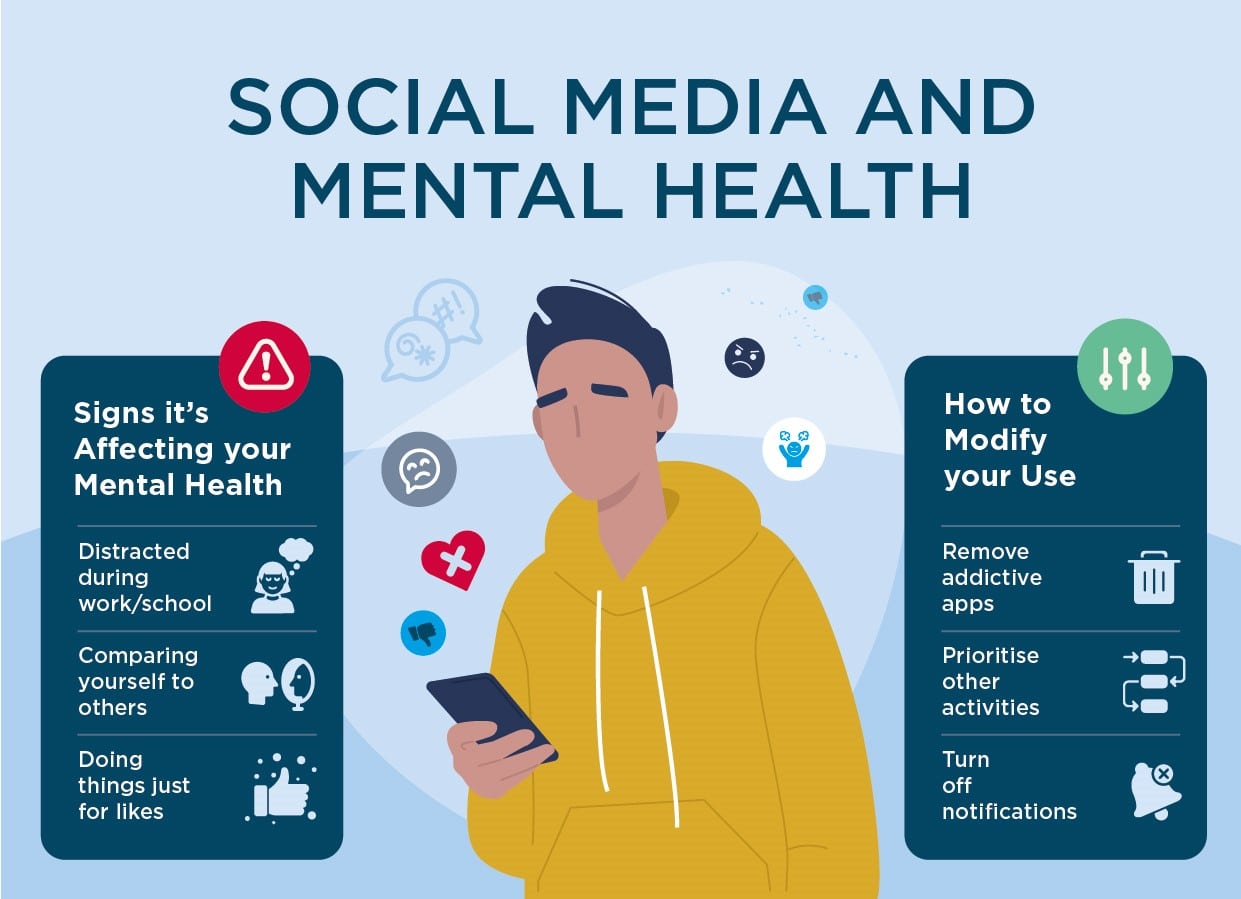List Of Contents
In the digital age, the pervasive influence of social media on our daily lives has raised significant concerns about its impact on mental health. This 1000-word article delves into the complex relationship between social media and mental health, exploring how online platforms affect psychological well-being and the various factors that contribute to this danatoto dynamic.
Introduction
Social media has become an integral part of modern life, profoundly influencing how we communicate, share information, and perceive the world. While it offers numerous benefits, including connectivity and access to information, there’s growing concern about its impact on mental health. This article examines both the positive and negative aspects of this relationship and discusses strategies for healthy social media use.
The Impact of Social Media on Mental Health
Positive Aspects
- Connectivity and Support: Social media provides a platform for connecting with others, sharing experiences, and finding support, especially for individuals who may feel isolated.
- Access to Information: It offers vast resources for mental health education and awareness, helping destigmatize mental health issues and encouraging individuals to seek help.
Negative Aspects
- Increased Anxiety and Depression: Studies have linked excessive social media use with increased levels of anxiety and depression, particularly among adolescents and young adults.
- Cyberbullying and Online Harassment: The anonymity and reach of social media can lead to cyberbullying, which has been associated with psychological distress, self-harm, and suicidal ideation.
- Comparison and Low Self-esteem: Constant exposure to curated images and lifestyles can lead to negative self-comparison and feelings of inadequacy, impacting self-esteem and body image.
Understanding the Dynamics
The Role of Dopamine
Social media can create a dopamine-driven feedback loop. Receiving likes, comments, and shares triggers the release of dopamine, a neurotransmitter associated with pleasure, encouraging repeated social media use.
Social Media Addiction
Some individuals may develop a dependence on social media, similar to addiction. This compulsive behavior can interfere with daily life, work, and relationships, contributing to mental health issues.
The Illusion of Social Connection
While social media facilitates connections, these are often shallow and do not provide the same psychological benefits as face-to-face interactions, potentially leading to feelings of loneliness and isolation.
Demographic Variations
Impact on Adolescents and Young Adults
Young people are particularly vulnerable to the adverse effects of social media. They are more likely to experience cyberbullying, peer pressure, and negative body image issues exacerbated by social media.
Differences in Gender
Research indicates that the impact of social media on mental health may vary by gender, with studies suggesting that women and girls are more likely to experience negative effects such as body image concerns and depression.
Social Media and the COVID-19 Pandemic
The COVID-19 pandemic has intensified the use of social media due to physical distancing measures. While it has been crucial for staying connected, the pandemic has also highlighted and possibly amplified the mental health challenges associated with social media use.
Strategies for Mitigating Negative Impacts
Mindful Use of Social Media
Being mindful of time spent on social media and the nature of content consumed can help mitigate its negative impact. This includes setting time limits and being selective about accounts and content.
Promoting Positive Online Communities
Fostering positive, supportive online communities can counteract negative aspects of social media. Encouraging kindness, respect, and authentic connections can enhance the positive psychological impact.
Educational Programs and Awareness
Raising awareness about the potential mental health risks of social media, especially among young users, is crucial. Educational programs in schools and communities can equip individuals with strategies to use social media healthily.
The Role of Social Media Platforms
Implementing Protective Measures
Social media companies can play a significant role in protecting users’ mental health. This includes measures to combat cyberbullying, regulate harmful content, and promote positive social interactions.
Research and Development
Investing in research to better understand the relationship between social media and mental health can help platforms develop features that promote psychological well-being.
Future Directions
Ongoing Research
Continuous research is essential to deepen our understanding of the complex relationship between social media and mental health. Longitudinal studies can provide insights into long-term effects and guide interventions.
Integrating Mental Health Support
Integrating mental health resources and support directly into social media platforms could offer immediate assistance to users experiencing distress.
Policy and Regulation
There is a growing call for policy and regulation to address the mental health implications of social media. This includes privacy protection, age restrictions, and guidelines for content and advertising.
Conclusion
The relationship between social media and mental health is multifaceted and complex. While social media offers significant benefits in terms of connectivity and information access, it also poses risks to mental well-being. Understanding these dynamics is crucial for individuals, parents, educators, and policymakers. By adopting mindful usage practices, promoting positive interactions, and implementing protective measures, the negative impacts of social media on mental health can be mitigated. As we continue to navigate the digital landscape, fostering a balanced and healthy relationship with social media is essential for our overall psychological well-being.

